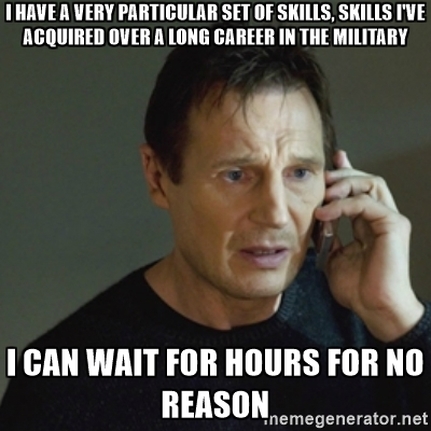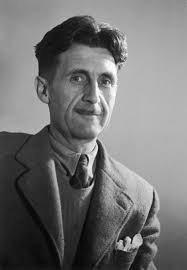For the better part of the last 20 years, leadership has been my bread and butter. Don’t take that the wrong way – I’m not claiming to be a good leader; just expressing the fact that leadership training has been part of my daily routine since I began preparing to be an officer. It started when I was a cadet, carried through my command tours and deployments, and is still a factor for me today. Yes, even staff officers can be leaders.
But what about as a writer?
I’ve been told that as I transition out of the military, I should be prepared for some of big changes in being a civilian. And while I think the advice was given with respect to things like benefits, discipline, worrying about what uniform to wear etc., I’ve been thinking a lot about something else that’s been part of my life since pretty much day one. Being a leader.
Again, I may not be the best leader, but I do know a thing or two about leadership. Can I apply the lessons I’ve learned in the military to a life as a writer? Let’s take a closer look.
At face value, it’s tempting to say that writers can’t be leaders – the context is just way too different, especially from the leadership exercised in the military. And, to be fair, I’d have to agree that there are some major dissimilarities.
For one, I don’t know any writers who have subordinates, or, really any sort of formal chain of command. Also, no authorities, no commissioning scroll from Her Majesty imbuing one with the responsibility of command. No societally ingrained deference to roles, or the trappings of positional or rank based power. So far, not a lot of similarities.
And yet, these differences don’t mean that writers can’t also be leaders.
Whether formal or not, each writer could theoretically be part of a team, specifically their publishing, editing, and marketing team. Even self-published authors often enlist these functions and there’s no end of material reiterating that it takes a team to create a novel.
But the relationship I’m most curious about is in the broadest concept, which is whether writers can exercise leadership with their readers. Before we jump into this examination, maybe some leadership definitions help? (It’s pretty much mandatory in any article on leadership…)
First, the military definition, the one I’m most familiar with. In the publication, Conceptual Foundations, effective leadership in the Canadian Forces is defined as, “(d)irecting, motivating, and enabling others to accomplish the mission professionally and ethically, while developing or improving capabilities that contribute to mission success.” I like this definition, but it must be noted that it reflects a style of leadership that is fundamentally task-based – it’s about accomplishing the mission. Which is fine, considering it’s the military. What’s more, since the military fights as a team its views on leadership are inherently organizationally based and reflective of the hierarchical structure that has evolved over time. Again, all good.
However, this definition of leadership doesn’t fit nicely for a writer. Good thing there’s almost as many definitions of leadership as there are practitioners of leadership. So let’s deconstruct the definition a bit more.
What about something broader, such as, “directly or indirectly influencing others, by means of formal authority or personal attributes, to act in accordance with one’s intent or a shared purpose.” This definition is also found in Conceptual Foundations, just not for the military context.
I also like this definition. Leadership is ultimately about influence, whether it achieves a goal or not. And leadership doesn’t have to be tied to formal authority; it can be based on personal qualities. That makes sense to me – the neighbourhood local watch person can influence the stand-up of a neighbourhood patrol in the total absence of any authority. I also like the part about indirect influence because it implies that processes such as persuasion and consultation come into play, as opposed to the exercise of direct influence like, “are you stupid or just dumb? What part of ‘I just gave you a direct order’ didn’t you understand?”
And now you know why I caveated the intro by saying I wasn’t claiming to be a good leader. Anyways, this new definition is starting to look more and more like it contains the domain in which a writer could be a leader.
But do writer’s exercise purposeful leadership? Can their influence be said to be in accordance with their intent? I guess that depends on why a writer writes.
|
George Orwell hypothesized that there were four reasons why somebody would write. Ego. The universal urge to be famous, talked about, remembered. The curse of Achilles, whether an athlete, politician, or businessman, everybody has this urge to lesser or greater degrees. If writing to influence people to remember you, then I suppose that could be a form of leadership (leaving aside value judgements). |
Aesthetic Enthusiasm, or appreciating the beauty that can result from good prose. I defy anybody to read The Gettysburg Address and not be impressed at what President Lincoln was able to express in 272-ish words (depending on what version you refer to). Still, writing from this domain seems like a stretch in terms of influencing others.
Historical Impulse, or the desire to record things that are happening. In and of itself, not influential.
Political Purpose, which Orwell used in a very broad sense, such as the, “(d)esire to push the world in a certain direction, to alter other peoples’ ideas of the kind of society that they should strive after.” This, then, is clearly purposeful intent.
Of course, these four factors can interact. The Gettysburg Address isn’t a piece of poetry; it’s a manifestly political oratory that just happens to be tight. Still, at least 2 of Orwell’s 4 factors could be said to be conducted in accord with purposeful influence, either when writing from ego, or from political purpose. Remember, leader intent doesn’t have to be socially beneficial; an effective leader could also be utterly self-serving.
Nonetheless, Orwell’s first point is not the one that I’m primarily concerned with, rather it’s the last point that I think is instructive.
Contributing to the Collective
Vaughn Roycroft recently posted an article on Writer Unboxed articulating the importance of stories, especially during turbulent times. Whether politicized or not, stories offer perspectives of the world in which we live. Through vicarious experience, a writer can deliver a unique understanding of different viewpoints and beliefs.
This is the shared experience we discussed in last week’s post. But is this shared experience a manifestation of leadership?
I’d suggest that if the story influences somebody to react to the story, to accept a different belief or understand a different viewpoint, then leadership has been exercised. Does anyone think that 1984 didn’t influence people to think about what the logical conclusion of life under totalitarian rule would be like?
Granted, not every book can have influence like 1984. A key question has to be, why did the author writer their book, which is why theme is so important. Goodnight Moon might be mindless drivel to some, but if the theme is about the importance of having a bedtime routine for kids, then the book probably does influence people, at least in a subtle way.
In fact, I’d suggest that more books than we realize are successful in influencing people to at least think of another perspective. And if that’s what the author intended, then they arguably demonstrated leadership.
So there you have it, writers can be leaders. Granted, it may not be slam dunk leadership, maybe not Liam Neeson as John ‘Hannibal’ Smith leadership, but it’s definitely George ‘Animal Farm’ Orwell leadership. Which is ironic, since Orwell himself thought that writing for a political purpose was his weakest motivation. Imagine how effective he’d have been if he was trying.
Anyways, if you agree that a writer can be a leader, then what about the applicability of other leadership research? For example, could the Canadian Armed Forces principles of leadership be applied to a writer? I don’t know, but I’m going to find out. Over the next several weeks, I’ll look at the principles of leadership I learned in the military and see if they apply to life as a writer. It’ll probably be an ugly fit at times, but that could make for interesting articles and more than a little critique.
If that happens, it’s all good; I’ll just try to live up to another military truism I learned along the way, namely, ‘If you’re gonna be stupid, you’d better be hard.’


